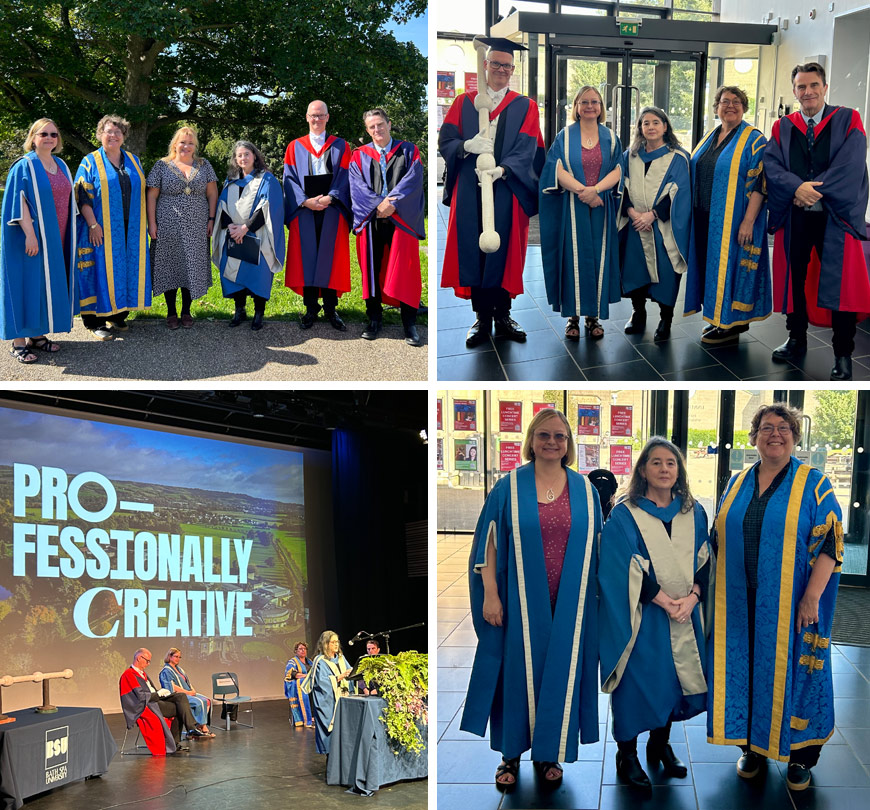A true ‘champion for diversity, equity and inclusion’
- Wits University
Bath Spa University (BSU) bestows Professor Ruksana Osman with a BSU Honorary Doctorate of Education.
The UK-based university recognised Osman as “a champion for diversity, equity and inclusion who works in a deliberate, deliberative and considered way to ensure that academics and students bring their whole selves to learn and teach, to research and innovate, and work in an environment that is diverse and affirming”.
An internationally renowned education expert, Osman is currently the Senior Deputy Vice-Chancellor: Academic at Wits University, where she is also at the forefront of building several transnational partnerships, particularly with UK, European and African universities.
BSU itself is one of those partners. First working together in 2018, BSU and Wits have an ongoing relationship, hosting visits between staff and, as recently as July 2024, implementing a three-year bursary scheme to support strategic collaboration.
“Bath Spa University is proud to have awarded Professor Ruksana Osman an Honorary Doctorate of Education as the latest member to join our Honorary cohort of 2024 that recognises individuals who excel in their field and contribute to our values of inclusivity, creativity and sustainability,” BSU said in a statement.
Speaking at the celebration ceremony, Osman spoke of her pride in being recognised by BSU:
“It is with profound gratitude that I receive this honour and recognition from Bath Spa University. I accept it on behalf of everyone who has lent me a helping hand and believed in me throughout my journey. I receive it on behalf of my parents, my extended family, my teachers, my friends, and my colleagues”

We need a network of networks’
Osman has spearheaded Wits’ partnership in several strategic academic initiatives including the Diversifying the Academy programmes, the Wits Edinburg Sustainable African Futures (WESAF) doctoral program, the AFRETEC (African Engineering and Technology) network, The Future Materials Project, and the African Research Universities Alliance (ARUA) on collaborative doctoral degree programs.
“This is a momentous decade for global solidarity and collaboration amongst universities,” she said, adding that following the digital shift driven by the Covid-19 pandemic, the global higher education landscape is changing rapidly, presenting a unique opportunity for Africa and the world.
“While the Continent may currently be less digitally mature than some of our global counterparts, we are less constrained by the legacies of the pre-pandemic world, positioning us to rapidly incorporate new forms of technology and learning.”
“We need to create a ‘network of networks’ to share knowledge and talent, transcending regional interests and recognising that the challenges we face—climate change, health crises, or social inequities—are global in nature and require global solutions,” she added.
“A truly global network of universities must leverage the strengths of diverse educational systems while addressing local needs. For Africa, this means creating conditions that retain our talent while contributing to the global knowledge economy. It also means building strong management capacity that supports both continental and global initiatives, ensuring that we do not drain resources but instead enrich each other's capabilities,” she said.
Champion for collaboration
Osman has spearheaded Wits’ partnership in several strategic academic initiatives including the Diversifying the Academy programmes, the Wits Edinburg Sustainable African Futures (WESAF) doctoral program, the AFRETEC (African Engineering and Technology) network that aims to drive digital transformation on the African continent, The Future Materials Project which involves collaborating with a number of global universities working on the social, engineering and scientific problems in the future of mining, and the African Research Universities Alliance (ARUA) on collaborative doctoral degree programs.

